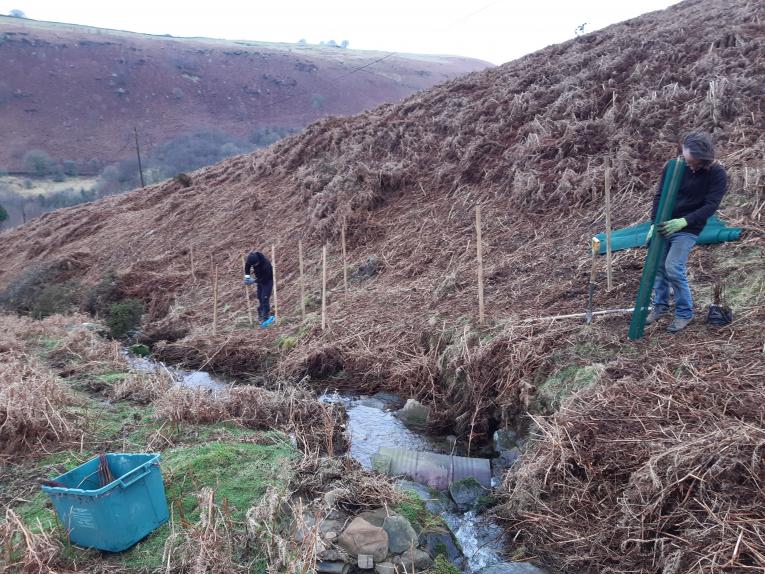
The power of nature based solutions - a positive for people, climate and wildlife in Wales
Natural Resources Wales will deliver the detail of Wales’ first National Peatland Action Programme and offer insight into other nature-based solutions projects happening in Wales. One of the highlights will be the sharing of a new report commissioned by the Royal Society for the Protection of Birds (RSPB) and the World Wildlife Fund (WWF), which evidences new ways that nature-based solutions can impact climate.
Fields of ambition - farming at the centre of sustainable land use for the future (hosted by Farmers’ Union of Wales, Hybu Cig Cymru, National Sheep Association and National Farmers Union- NFU Cymru)
How do we achieve net zero while enhancing biodiversity? This will be the question central in a debate on how Welsh agriculture is uniquely placed to be a world leader in sustainable food production. Panellists will discuss how to integrate trees into farming systems, improve farming’s productive efficiency, the role and use of carbon calculators, grazing for biodiversity, sustainable food security and the opportunities and risks of the carbon market.
Working with wetlands – an important part of nature’s solution (hosted by Welsh Water)
"We may be biased, but few would argue that Wales is home to some of the most wonderful natural habitats – which is, of course, the home to our valued wildlife. In this session, Dwr Cymru will explain its role in making sure that local habitats and environments are not only protected but also improved and given space to thrive in a changing world. Particular emphasis will be given to the protection and expansion of Sites of Special Scientific Interest across Wales and a £200m investment in our rivers over the next four years."
You can register onto the COP Cymru 2021 events here: https://freshwater.eventscase.com/EN/COPCymru21/Programme
The Welsh Government has also been helping with Nature based solutions to tackle Climate Change through the Sustainable Management Scheme through various projects some of which are highlighted below.
Fferm Ifan Ecosystem Service Improvement Scheme
A collaborative farmer led project taking landscape scale action on land management to improve ecosystem resilience and the services they provide. A cooperation of 11 farmers, Fferm Ifan seek to improve and manage natural resources in a more sustainable and efficient way. The project covers approximately 2,456 Ha and includes new targeted land management actions which will also deliver socio-economic benefits to the 11 farms and to the wider rural community Fferm Ifan live within.
Farming the Gwent Levels Sustainably
This collaborative project includes RSPB Wales, Natural Resources Wales and the Gwent Wildlife Trust working closely with farmers and other partners to develop the understanding, knowledge, skills and experience need to deliver the sustainable management of natural resources within the Gwent Levels.
Participating farmers and project partners will take action to improve water quality, habitat improvement and creation, improving soil condition, and establishing habitat strips for pollinators, which will also act as buffers alongside watercourse. All actions aiming to improve the environment of the Gwent Levels for people and nature, whilst supporting sustainable farm businesses.
You can discover all of the good work projects funded by the Sustainable Management scheme are doing all around Wales by clicking here.
The Sustainable Management Scheme (SMS) is designed to support the delivery of the Welsh Government’s commitment to sustainable development as set out in the Well-being of Future Generations (Wales) Act 2015 and the Environment (Wales) Act 2016. The purpose of the SMS is to support collaborative landscape scale projects with nature-based solutions to improve the resilience of our natural resources and ecosystems in a way that also delivers benefits to farm businesses and the health and well-being of rural communities. SMS projects are undertaking actions to enhance biodiversity; improve green infrastructure; sustain better land and water management and importantly, facilitate climate change adaptation and mitigation.
